– By Dhritiman Paul

As a cornerstone participant of the UN, India endorses the organization’s ideals and beliefs, and it has made significant commitments towards the Charter’s implementation and the creation of the UN’s specialized organizations and programs. India’s growing involvement with the UN is premised on its continued devotion to multilateralism and discussion as the most effective means of attaining mutual objectives and tackling common difficulties. India has the firm belief that the United Nations and its international norms and regulations have promoted the most effective means of addressing the concerns like- international peace and security, climate change, peace-making, maritime security, terrorism, migration-related concerns, human rights, as well as, health and pandemic issues. India is committed to working with the international community in the ethos of multilateralism to find thorough and fair resolutions to all global problems. In this blog we are looking into how India kept herself engaged in the United Nations in 2021.
Holding a strong seat in the UNSC (United Nations Security Council):
India got a precious opportunity of holding the seat of the presidency for one month from August 1, 2021, during the time of her serving as an elected member for a two-year term from 2021 to 2022.
The ‘Permanent members’ of the UNSC have worked for years to weaken the capabilities of non-permanent members i.e., those who are elected members, like- India, limiting their capacity to use the forum effectively. New Delhi was able to prove to the entire world, if momentarily, that India can negotiate the complexities of multilateralism by standing in the Security Council podium. The presidency provided a chance for New Delhi to demonstrate its strength, innovation, and diplomatic skills while also addressing its rival China despite outright mentioning her in the presidential comments or speeches. As soon as, India got the presidential position, she started planning to fruitfully use her tenure at this coveted board to bring the humanitarian approach required and equitable remedies to the issues and concerns of international peace and security, as well as, to provide the collective voice from the entire ‘developing or under-developing nations’. India reiterated its resolve to speak out against shared enemies of democracy such as ‘terrorism’, while also emphasizing the need for ‘reformation of multilateralism’, a subject that has resonated across India’s various contributions on the topic. In the last year, the world has witnessed how once again the Taliban came into the power of Afghanistan. India played tactful diplomatic skills to handle the situation of maintaining collaboration with Afghanistan. In the UNSC, India had voted in favour of the need for the exemption of humanitarian aid to Afghanistan. India, along with the rest of the UN Security Council, endorsed the idea of Resolution 2615, which created a compassionate exemption from the international sanctions which were imposed five years ago. However, the final document has been widely regarded in the South Block and several other world capitals as a ‘missed opportunity or chance’ for the global community to impose tougher terms on the Taliban, as it was rushed along by three permanent members of the UNSC together. Afghanistan’s humanitarian catastrophe is a harsh reality. The economy of Afghanistan had a drastic fall since the Taliban took the charge of administering the nation. The GDP was shrunk by an estimated 40%, which is the worst in the history of 27 years. More than 55% of the population of Afghanistan required humanitarian aid. However, after the passing of the resolution, it was seen that India has expressed its opinion of supporting it but did not welcome it like- the USA, Estonia, UK, etc. nations did after the resolution was passed. T.S. Tirumurti, India’s permanent ambassador to the United Nations, had explained the reason saying that the Security Council should keep a close eye on the distribution and safeguard against money laundering. This is highly essential since any misuse can have negative impacts. In that context, Tirumurti stated explicitly that India “welcome the provision in the resolution that calls for a review of the implementation of the humanitarian carve-out after one year” (Mitra, 2021). India also engaged herself regarding maritime security concerns. The most important issue that India paid is the ‘reformation of multilateralism’. India was elected to its eighth term on the United Nations Security Council, receiving 184 of the 192 votes, indicating widespread support for India’s global leadership. At this moment during which multilateralism and global governance are confronting significant challenges and problems, it is critical for a country like India to stand up and give its fair share. New Delhi, a long-time supporter of multilateralism, wants to present its image as an active and responsible participant, and the UNSC is the best place to do it. The present world is rapidly evolving; we are gradually entering into a world from globalization to a new period of decoupling of the world economy. The emergence of a great kind of monopolistic power contestant again can be observed since the post-cold war. A new rising of China as a global power is creating challenges to the liberal international or global orders as well as, domestic support for India as the international engagement of America currently is at its lowest form.
India significantly looked forward in the sessions of UNSC in 2021 to redefine its position as a shaper of global order. S. Jaishankar suggested the need for a refreshing order in multilateralism in UNSC. Prime Minister Narendra Modi, too, has questioned the UN as the organisation suffers from a “crisis of confidence,” and has called for a new multilateralism template that “reflects today’s reality, gives voice to all stakeholders, addresses contemporary challenges, and focuses on human welfare” (Pant, 2021).
Engagement for negotiations for climate change:
India being the fourth-largest carbon-dioxide emitting nation, it plays a key role in the UN’s climate change negotiations issues. Furthermore, both at the Copenhagen and Paris Conferences of the Parties, India was acknowledged as a primary author of the accords and a leadership inside the Brazil-South Africa-India-China (BASIC) coalition, and also the larger Group of 77 (G77) coalition (COPs). India accomplishes all three stages of successful multilateralism in its participation and talks on climatic changes underneath the charter of the United Nations. India has pushed for an international accord to address climate change on a regular basis.
Conclusion:
In the engagement of the United Nations in 2021, India paid its full attention to becoming a permanent member of the United Nations Security Council (UNSC). India took the advantage of its presidency tenure to bring the concerns of the need to redefine multilateralism for both greater good of India, and maintain world harmony. But the question raises will India be able to become a permanent member in UNSC? To deal with this issue diplomatically, India has developed and improved its trade and business relations with US in the last two decades quintessentially to get US support irrespective of the opposition from China. This has alarmed policymakers in the United States. Given India’s numerous multilateral alignments with Russia and China, some feel it is a member of a neutral bloc that threatens Western interests. However, several of these concerns are unfounded, and India-US convergence on a variety of subjects is still achievable through conversation. India with the support of its G77 members is continuously putting on pressure on to make her position as a permanent member in UNSC. Thus, India’s altogether engagement in United Nations in 2021 is quite a noticeable one where it plays dynamic roles and involvements in peace-making issues, dealing with Afghanistan, Covid-19 and vaccination issues where, India had send vaccination aid to many countries including Bangladesh, as well as, issues regarding multilateralism and maintaining world relations.
Bibliography :
1. Pant, Harsh V. “India’s UNSC moment”. ORF (2021). https://www.orfonline.org/research/indias-unsc-moment/ . (Accessed March 10, 2022)
2. Thakker, Aman Y. “India at the United Nations: An analysis of Indian multilateral strategies on international security and development”. ORF (2018). https://www.orfonline.org/research/india-at-the-united-nations-an-analysis-of-indian-multilateral-strategies-on-international-security-and-development/ . (Accessed March 12, 2022)
3. Pant, Harsh V. & Thakkar, C. “Strengthening Global Rule-Making: India’s Inclusion in the UN Security Council”. ORF (2021). https://www.orfonline.org/research/strengthening-global-rule-making/ . (Accessed March 9, 2022)
4. Mitra, Devirupa “Explained: India Voted Yes in UNSC on Aid Exemption to Afghanistan, But Dissatisfaction Remains”. The Wire (2021). https://thewire.in/south-asia/unsc-afghanistan-aid-exemption-india . (Accessed March 12, 2022)
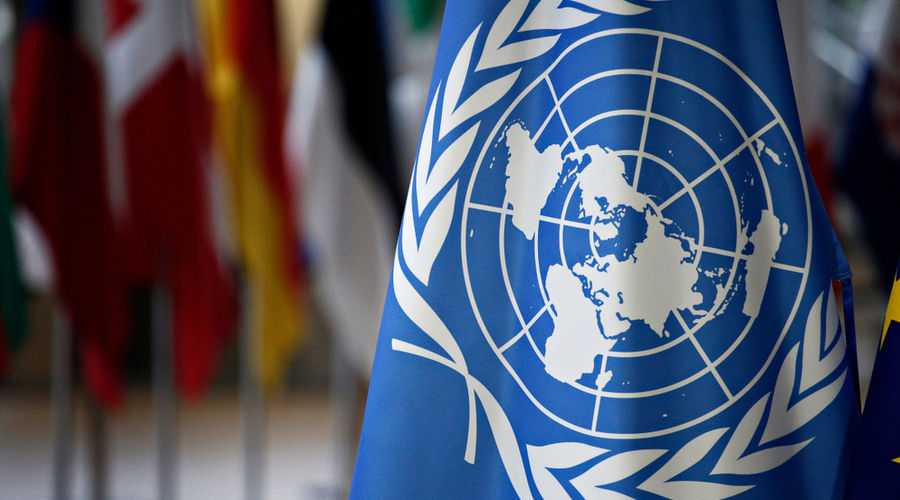
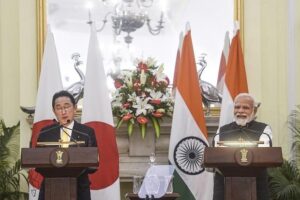

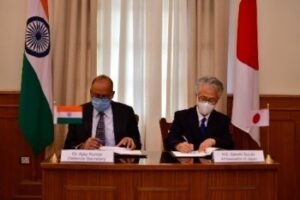
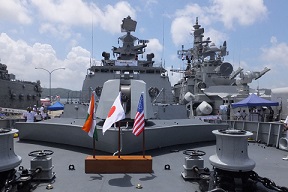
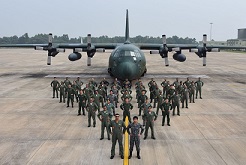



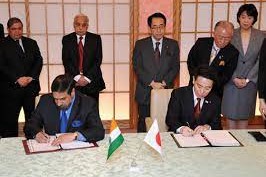

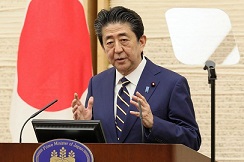
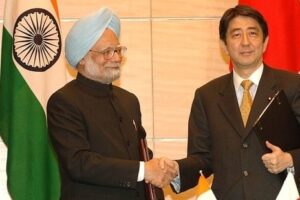

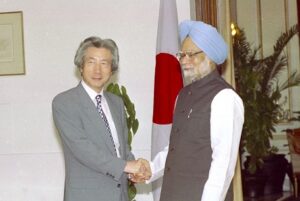
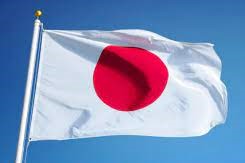
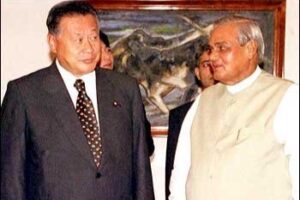

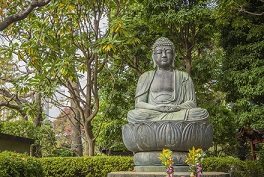
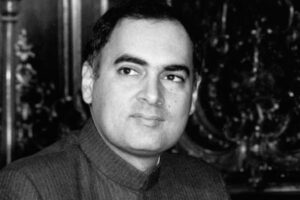

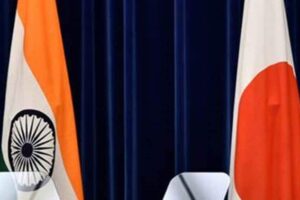
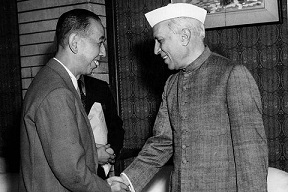
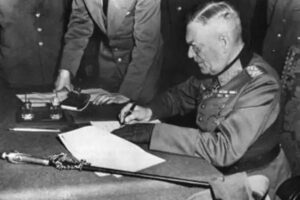

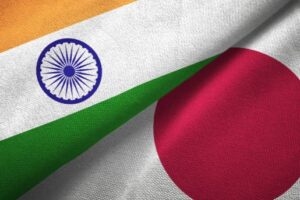
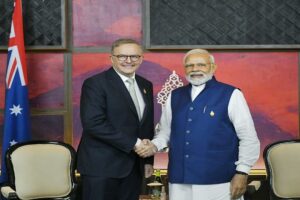


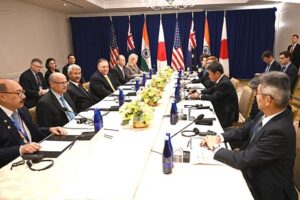
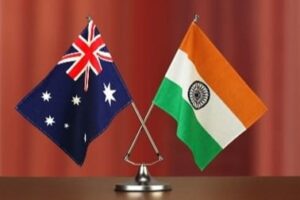
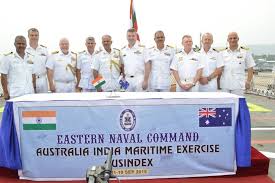

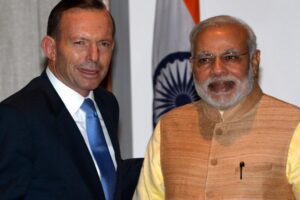
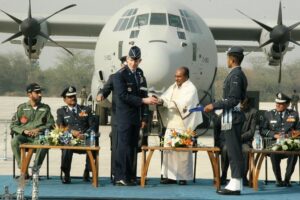
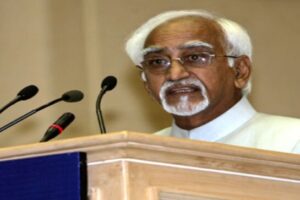

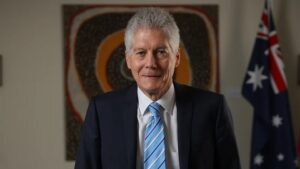

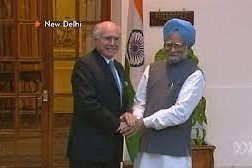
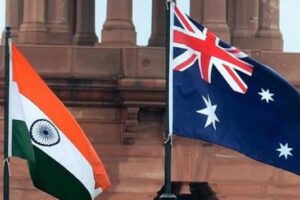
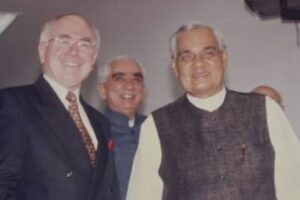

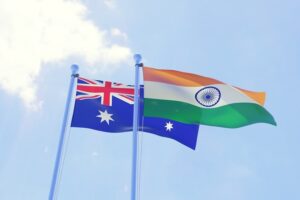

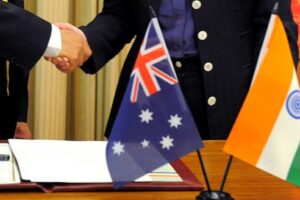
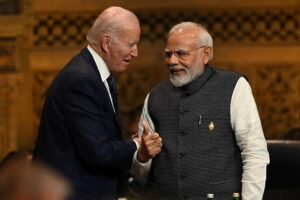
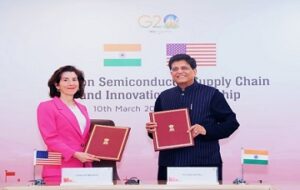
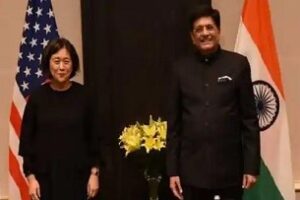
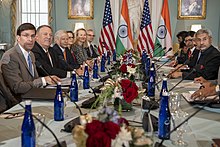
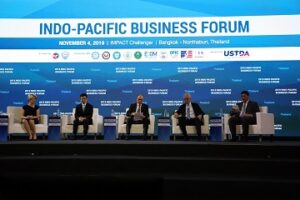
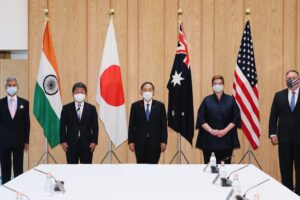
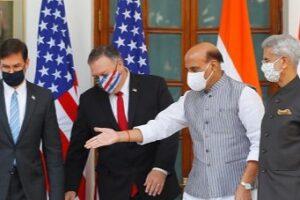
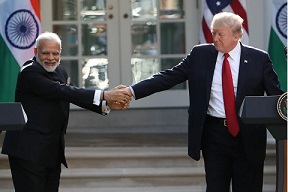
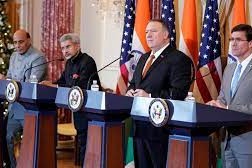
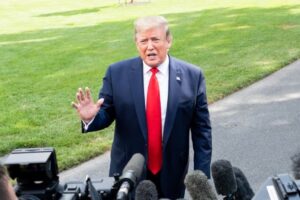
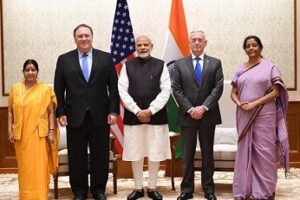
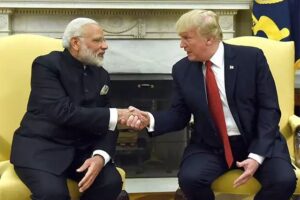
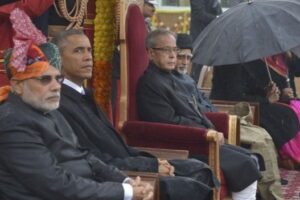
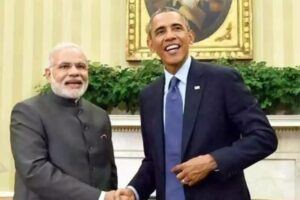
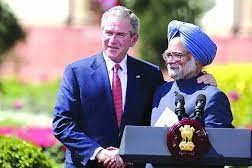
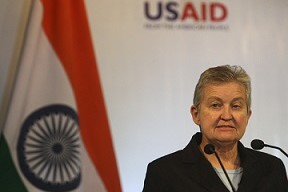
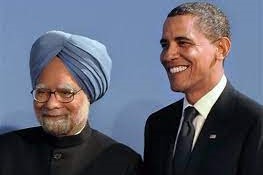
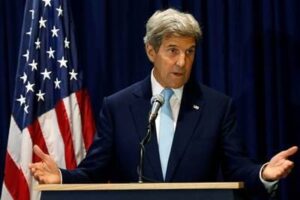
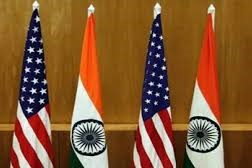
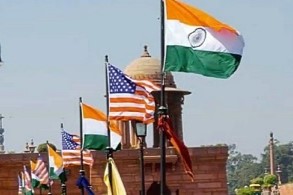
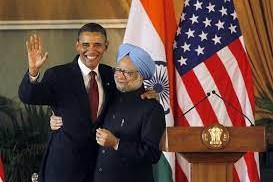
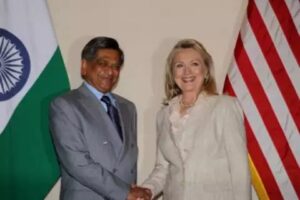
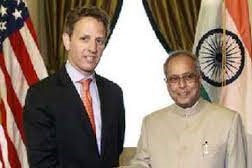
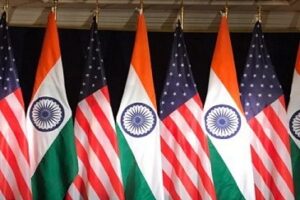
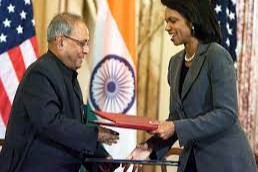

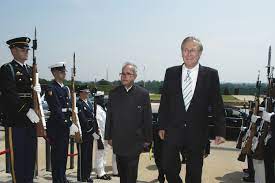



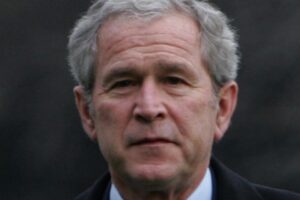
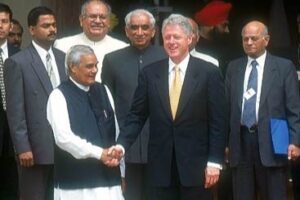
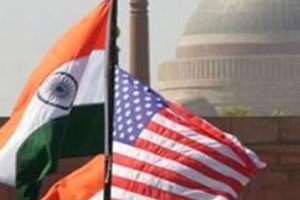

 onducted a total of five underground nuclear tests, breaking a 24-year self-imposed moratorium on nuclear testing. Pakistan followed, claiming 5 tests on May 28, 1998, and an additional test on May 30. The unannounced tests created a global storm of criticism, as well as a serious setback for decades of U.S. nuclear nonproliferation efforts in South Asia. On May 13, 1998, President Clinton imposed economic and military sanctions on India, mandated by Section 102 of the Arms Export Control Act (AECA), and applied the same sanctions to Pakistan on May 30. Some effects of the sanctions on India included: termination of $21 million in FY1998 economic development assistance; postponement of $1.7 billion in lending by the International Financial Institutions (IFI), as supported by the Group of Eight (G-8) leading industrial nations; prohibition on loans or credit from U.S. banks to the government of India; and termination of Foreign Military Sales under the Arms Export Control Act. Humanitarian assistance, food, or other agricultural commodities are excepted from sanctions under the law.
onducted a total of five underground nuclear tests, breaking a 24-year self-imposed moratorium on nuclear testing. Pakistan followed, claiming 5 tests on May 28, 1998, and an additional test on May 30. The unannounced tests created a global storm of criticism, as well as a serious setback for decades of U.S. nuclear nonproliferation efforts in South Asia. On May 13, 1998, President Clinton imposed economic and military sanctions on India, mandated by Section 102 of the Arms Export Control Act (AECA), and applied the same sanctions to Pakistan on May 30. Some effects of the sanctions on India included: termination of $21 million in FY1998 economic development assistance; postponement of $1.7 billion in lending by the International Financial Institutions (IFI), as supported by the Group of Eight (G-8) leading industrial nations; prohibition on loans or credit from U.S. banks to the government of India; and termination of Foreign Military Sales under the Arms Export Control Act. Humanitarian assistance, food, or other agricultural commodities are excepted from sanctions under the law. 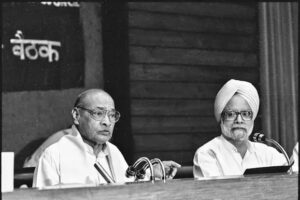
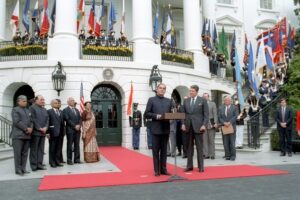
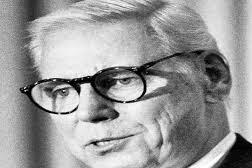
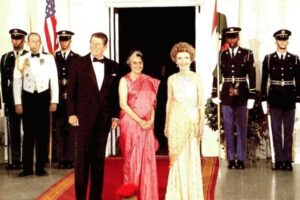
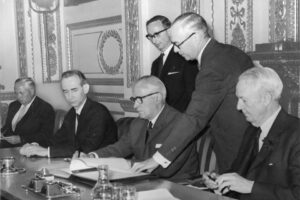
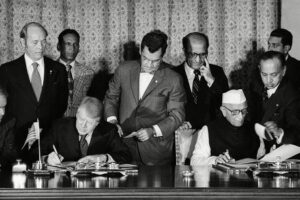
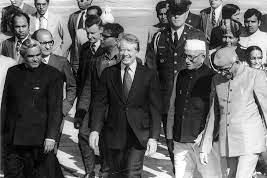
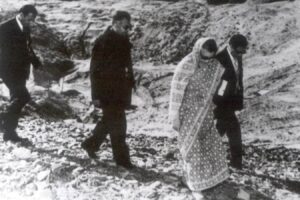
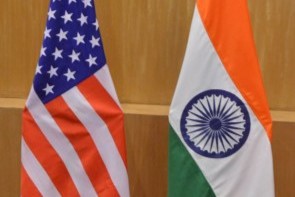

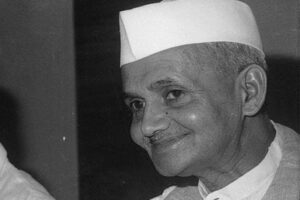

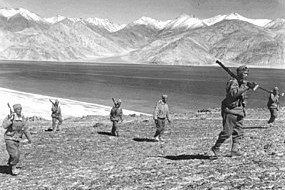
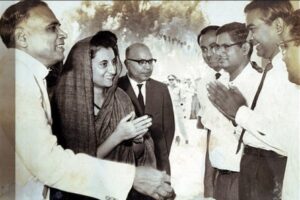
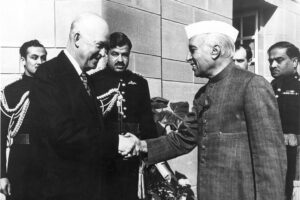

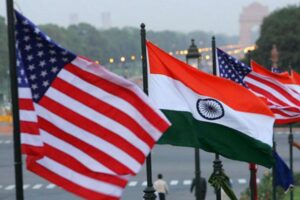
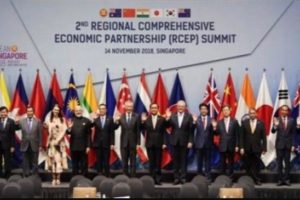 The first ministerial level meeting of QUAD was held on the sidelines of the United Nations General Assembly in New York. Before this, the QUAD had
The first ministerial level meeting of QUAD was held on the sidelines of the United Nations General Assembly in New York. Before this, the QUAD had AusIndEx is an exercise between India and Australia which was first held in 2015.The Australian
AusIndEx is an exercise between India and Australia which was first held in 2015.The Australian 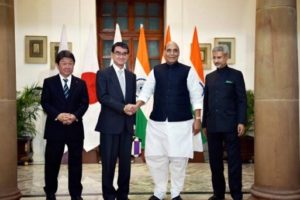

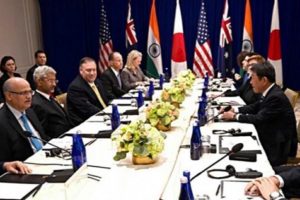

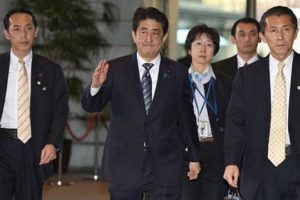
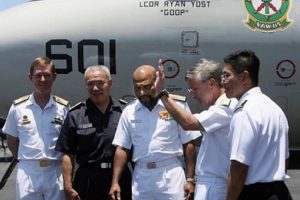

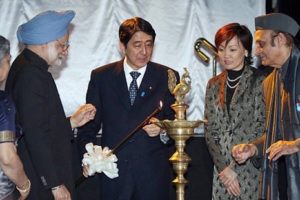
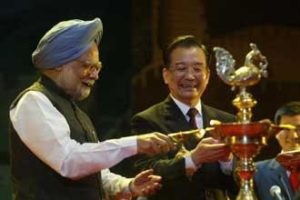 On recommendations of the Japanese government, the four countries met at Manila, Philippines for ASEAN Regional Forum (ARF) originally, but also ended up having a meeting of what we call the first meeting of four nation states on issues of
On recommendations of the Japanese government, the four countries met at Manila, Philippines for ASEAN Regional Forum (ARF) originally, but also ended up having a meeting of what we call the first meeting of four nation states on issues of 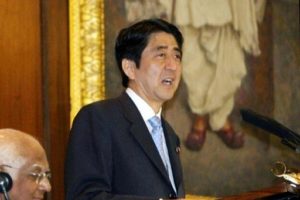 On his official visit to India, Japanese PM Mr. Shinzo Abe reinforced the ties of two nations, i.e., Japan and India with his famous speech about
On his official visit to India, Japanese PM Mr. Shinzo Abe reinforced the ties of two nations, i.e., Japan and India with his famous speech about 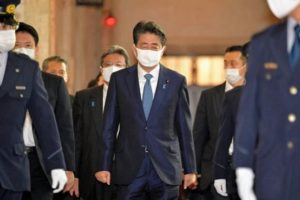 In 2007, Japanese President Shinzo Abe resigned from his post citing health reasons. This had a significant impact on QUAD as he was the architect & advocate of QUAD. His successor, Yasuo Fukuda, did not take up QUAD with such zeal leading to dormancy of the forum. (
In 2007, Japanese President Shinzo Abe resigned from his post citing health reasons. This had a significant impact on QUAD as he was the architect & advocate of QUAD. His successor, Yasuo Fukuda, did not take up QUAD with such zeal leading to dormancy of the forum. (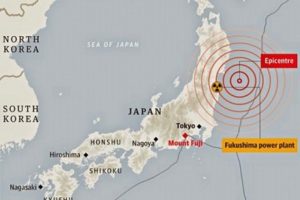 Japan earthquake and tsunami of 2011, also called Great Sendai Earthquake or Great Tōhoku Earthquake, was a 9.0 magnitude earthquake which struck below the floor of the Western Pacific at 2:49 PM. The powerful earthquake affected the northeastern coast of Honshu, Japan’s main island, and also initiated a series of large tsunami waves that devastated coastal areas of Japan, which also led to a major nuclear accident. Japan received aid from India, US, Australia as well as other countries. US Navy aircraft carrier was dispatched to the area and Australia sent search-and-rescue teams.
Japan earthquake and tsunami of 2011, also called Great Sendai Earthquake or Great Tōhoku Earthquake, was a 9.0 magnitude earthquake which struck below the floor of the Western Pacific at 2:49 PM. The powerful earthquake affected the northeastern coast of Honshu, Japan’s main island, and also initiated a series of large tsunami waves that devastated coastal areas of Japan, which also led to a major nuclear accident. Japan received aid from India, US, Australia as well as other countries. US Navy aircraft carrier was dispatched to the area and Australia sent search-and-rescue teams. 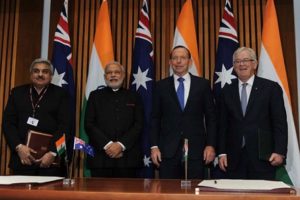 India and Australia signed the
India and Australia signed the 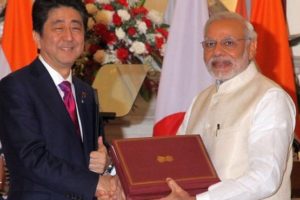 The India-Japan Agreement for Cooperation in the Peaceful Uses of Nuclear Energy was signed on 11 November, 2016 and came into force on 20 July, 2017 which was representative of strengthening ties between India and Japan. Diplomatic notes were exchanged between Dr. S. Jaishankar and H.E. Mr. Kenji Hiramatsu, Ambassador of Japan to India. (
The India-Japan Agreement for Cooperation in the Peaceful Uses of Nuclear Energy was signed on 11 November, 2016 and came into force on 20 July, 2017 which was representative of strengthening ties between India and Japan. Diplomatic notes were exchanged between Dr. S. Jaishankar and H.E. Mr. Kenji Hiramatsu, Ambassador of Japan to India. (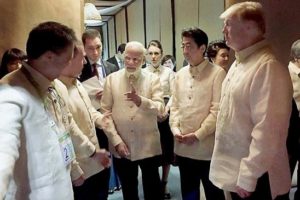 The foreign ministry
The foreign ministry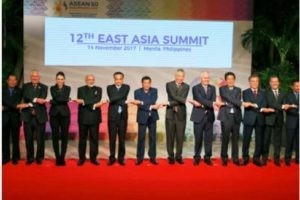 The Officials of QUAD member countries met in Singapore on November 15, 2018 for consultation on regional & global issues of common interest. The main discussion revolved around connectivity, sustainable development, counter-terrorism, maritime and cyber security, with the view to promote peace, stability and prosperity in the
The Officials of QUAD member countries met in Singapore on November 15, 2018 for consultation on regional & global issues of common interest. The main discussion revolved around connectivity, sustainable development, counter-terrorism, maritime and cyber security, with the view to promote peace, stability and prosperity in the  The 23rd edition of trilateral Malabar maritime exercise between India, US and Japan took place on 26 September- 04 October, 2019 off the coast of Japan.
The 23rd edition of trilateral Malabar maritime exercise between India, US and Japan took place on 26 September- 04 October, 2019 off the coast of Japan. 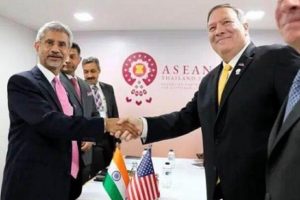 After the first ministerial level meeting of QUAD in September, 2019, the senior officials of US, Japan, India and Australia again met for consultations in Bangkok on the margins of the East Asia Summit. Statements were issued separately by the four countries. Indian Ministry of External Affairs said “In statements issued separately by the four countries, MEA said, “proceeding from the strategic guidance of their Ministers, who met in New York City on the sidelines of the UN General Assembly recently, the officials exchanged views on ongoing and additional practical cooperation in the areas of connectivity and infrastructure development, and security matters, including counterterrorism, cyber and maritime security, with a view to promoting peace, security, stability, prosperity in the Indo-Pacific region.”
After the first ministerial level meeting of QUAD in September, 2019, the senior officials of US, Japan, India and Australia again met for consultations in Bangkok on the margins of the East Asia Summit. Statements were issued separately by the four countries. Indian Ministry of External Affairs said “In statements issued separately by the four countries, MEA said, “proceeding from the strategic guidance of their Ministers, who met in New York City on the sidelines of the UN General Assembly recently, the officials exchanged views on ongoing and additional practical cooperation in the areas of connectivity and infrastructure development, and security matters, including counterterrorism, cyber and maritime security, with a view to promoting peace, security, stability, prosperity in the Indo-Pacific region.”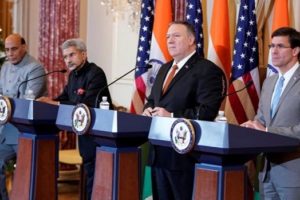 US 2+2 Ministerial Dialogue was held on 18 December, 2019, in Washington DC. Secretary of State Michael R. Pompeo and Secretary of Defense Mark T. Esper will host Indian Minister of External Affairs Dr. S. Jaishankar and Minister of Defense Shri Rajnath Singh. The discussion focussed on deepening bilateral strategic and defense cooperation, exchanging perspectives on global developments, and our shared leadership in the Indo-Pacific region.The two democracies signed the Industrial Security Annex before the 2+2 Dialogue. Assessments of the situation in Afghanistan, Pakistan, Nepal, Sri Lanka, and the Indian Ocean region in general were shared between both countries. (
US 2+2 Ministerial Dialogue was held on 18 December, 2019, in Washington DC. Secretary of State Michael R. Pompeo and Secretary of Defense Mark T. Esper will host Indian Minister of External Affairs Dr. S. Jaishankar and Minister of Defense Shri Rajnath Singh. The discussion focussed on deepening bilateral strategic and defense cooperation, exchanging perspectives on global developments, and our shared leadership in the Indo-Pacific region.The two democracies signed the Industrial Security Annex before the 2+2 Dialogue. Assessments of the situation in Afghanistan, Pakistan, Nepal, Sri Lanka, and the Indian Ocean region in general were shared between both countries. (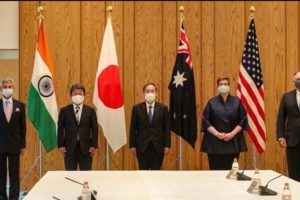 The foreign ministers of QUAD continued their discussions from the last ministerial level meeting in 2019, on 6 October, 2020. While there was no joint statement released, all countries issued individual readouts. As per the issue readout by India, the discussion called for a coordinated response to the challenges including financial problems emanating from the pandemic, best practices to combat Covid-19, increasing the resilience of supply chains, and enhancing access to affordable vaccines, medicines and medical equipment. There was also a focus on maintaining stability in the Indo-Pacific region amidst growing tensions. Australian media release mentions “We emphasised that, especially during a pandemic, it was vital that states work to ease tensions and avoid exacerbating long-standing disputes, work to counter disinformation, and refrain from malicious cyberspace activity. Ministers reiterated that states cannot assert maritime claims that are inconsistent with international law, particularly the United Nations Convention on the Law of the Sea (UNCLOS).”
The foreign ministers of QUAD continued their discussions from the last ministerial level meeting in 2019, on 6 October, 2020. While there was no joint statement released, all countries issued individual readouts. As per the issue readout by India, the discussion called for a coordinated response to the challenges including financial problems emanating from the pandemic, best practices to combat Covid-19, increasing the resilience of supply chains, and enhancing access to affordable vaccines, medicines and medical equipment. There was also a focus on maintaining stability in the Indo-Pacific region amidst growing tensions. Australian media release mentions “We emphasised that, especially during a pandemic, it was vital that states work to ease tensions and avoid exacerbating long-standing disputes, work to counter disinformation, and refrain from malicious cyberspace activity. Ministers reiterated that states cannot assert maritime claims that are inconsistent with international law, particularly the United Nations Convention on the Law of the Sea (UNCLOS).”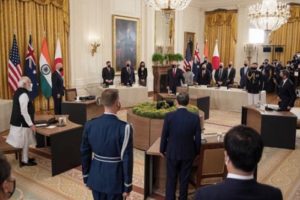 On September 24, President Biden hosted Prime Minister Scott Morrison of Australia, Prime Minister Narendra Modi of India, and Prime Minister Yoshihide Suga of Japan at the White House for the first-ever in-person Leaders’ Summit of the QUAD. The leaders released a Joint Statement which summarised their dialogue and future course of action. The regional security of the Indo-Pacific and strong confidence in the ASEAN remained on the focus along with response to the Pandemic.
On September 24, President Biden hosted Prime Minister Scott Morrison of Australia, Prime Minister Narendra Modi of India, and Prime Minister Yoshihide Suga of Japan at the White House for the first-ever in-person Leaders’ Summit of the QUAD. The leaders released a Joint Statement which summarised their dialogue and future course of action. The regional security of the Indo-Pacific and strong confidence in the ASEAN remained on the focus along with response to the Pandemic. 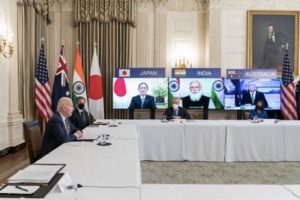 The QUAD Vaccine Partnership was announced at the first QUAD Summit on 12 March 2021 where QUAD countries agreed to deliver 1.2 billion vaccine doses globally. The aim was to expand and finance vaccine manufacturing and equipping the Indo-Pacific to build resilience against Covid-19. The launch of a senior-level QUAD Vaccine Experts Group, comprised of top scientists and officials from all QUAD member governments was also spearheaded.
The QUAD Vaccine Partnership was announced at the first QUAD Summit on 12 March 2021 where QUAD countries agreed to deliver 1.2 billion vaccine doses globally. The aim was to expand and finance vaccine manufacturing and equipping the Indo-Pacific to build resilience against Covid-19. The launch of a senior-level QUAD Vaccine Experts Group, comprised of top scientists and officials from all QUAD member governments was also spearheaded.  Although the Tsunami Core group had to be disbanded on fulfilment of its purpose, however the quadrilateral template that formed remained intact as a successful scaffolding of four countries, as stated by authors Patrick Gerard Buchan and Benjamin Rimland in their diplomatic brief about QUAD ( you can access the brief at
Although the Tsunami Core group had to be disbanded on fulfilment of its purpose, however the quadrilateral template that formed remained intact as a successful scaffolding of four countries, as stated by authors Patrick Gerard Buchan and Benjamin Rimland in their diplomatic brief about QUAD ( you can access the brief at 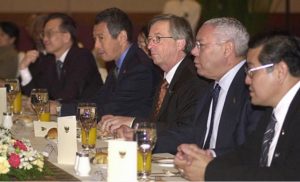 Secretary of State Colin Powell stated that the Core Tsunami Group was to be disbanded and folded and clubbed with the broader United Nations led Relief Operations. In a Tsunami Relief Conference in Jakarta, Secretary Powell stated that
Secretary of State Colin Powell stated that the Core Tsunami Group was to be disbanded and folded and clubbed with the broader United Nations led Relief Operations. In a Tsunami Relief Conference in Jakarta, Secretary Powell stated that 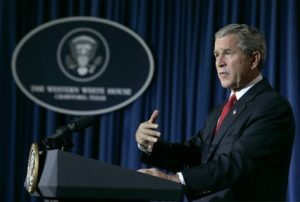 Soon after the Earthquake and Tsunami crisis, humanitarian reliefs by countries, viz., US, India, Japan, and Australia started to help the 13 havoc-stricken countries. The US initially promised $ 35 Millions in aid. However, on 29
Soon after the Earthquake and Tsunami crisis, humanitarian reliefs by countries, viz., US, India, Japan, and Australia started to help the 13 havoc-stricken countries. The US initially promised $ 35 Millions in aid. However, on 29 At 7:59AM local time, an earthquake of 9.1 magnitude (undersea) hit the coast of Sumatra, an Indonesian island. As a result of the same, massive waves of Tsunami triggered by the earthquake wreaked havoc for 7 hours across the Indian Ocean and to the coastal areas as far away as East Africa. The infamous Tsunami killed around 225,000 people, with people reporting the height of waves to be as high as 9 metres, i.e., 30 feet. Indonesia, Srilanka, India, Maldives, Thailand sustained horrendously massive damage, with the death toll exceeding 200,000 in Northern Sumatra’s Ache province alone. A great many people, i.e., around tens of thousands were found dead or missing in Srilanka and India, mostly from Andaman and Nicobar Islands of Indian territory. Maldives, being a low-lying country, also reported casualties in hundreds and more, with several non-Asian tourists reported dead or missing who were vacationing. Lack of food, water, medicines burgeoned the numbers of casualties, with the relief workers finding it difficult to reach the remotest areas where roads were destroyed or civil war raged. Long-term environmental damage ensued too, as both natural and man-made resources got demolished and diminished.
At 7:59AM local time, an earthquake of 9.1 magnitude (undersea) hit the coast of Sumatra, an Indonesian island. As a result of the same, massive waves of Tsunami triggered by the earthquake wreaked havoc for 7 hours across the Indian Ocean and to the coastal areas as far away as East Africa. The infamous Tsunami killed around 225,000 people, with people reporting the height of waves to be as high as 9 metres, i.e., 30 feet. Indonesia, Srilanka, India, Maldives, Thailand sustained horrendously massive damage, with the death toll exceeding 200,000 in Northern Sumatra’s Ache province alone. A great many people, i.e., around tens of thousands were found dead or missing in Srilanka and India, mostly from Andaman and Nicobar Islands of Indian territory. Maldives, being a low-lying country, also reported casualties in hundreds and more, with several non-Asian tourists reported dead or missing who were vacationing. Lack of food, water, medicines burgeoned the numbers of casualties, with the relief workers finding it difficult to reach the remotest areas where roads were destroyed or civil war raged. Long-term environmental damage ensued too, as both natural and man-made resources got demolished and diminished.
No responses yet